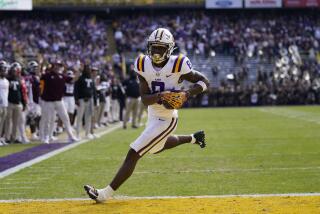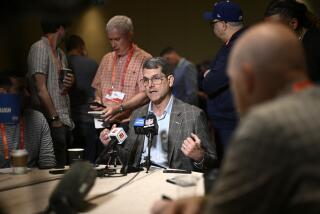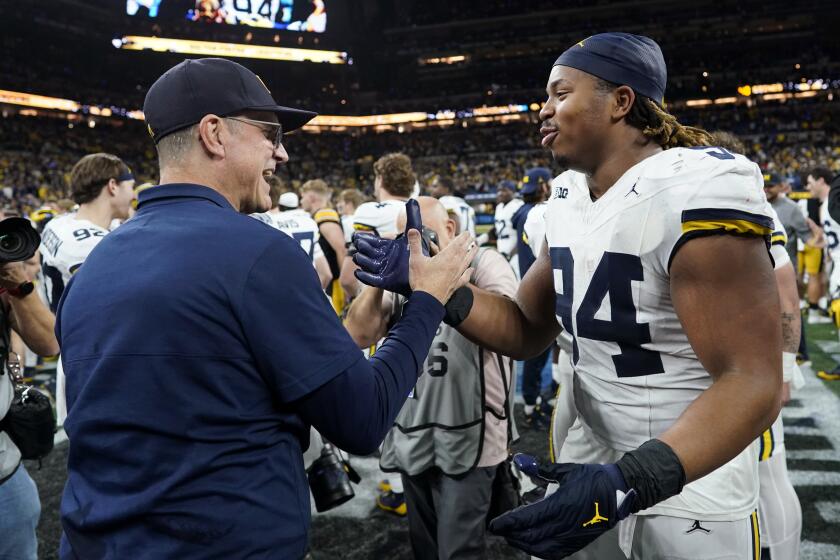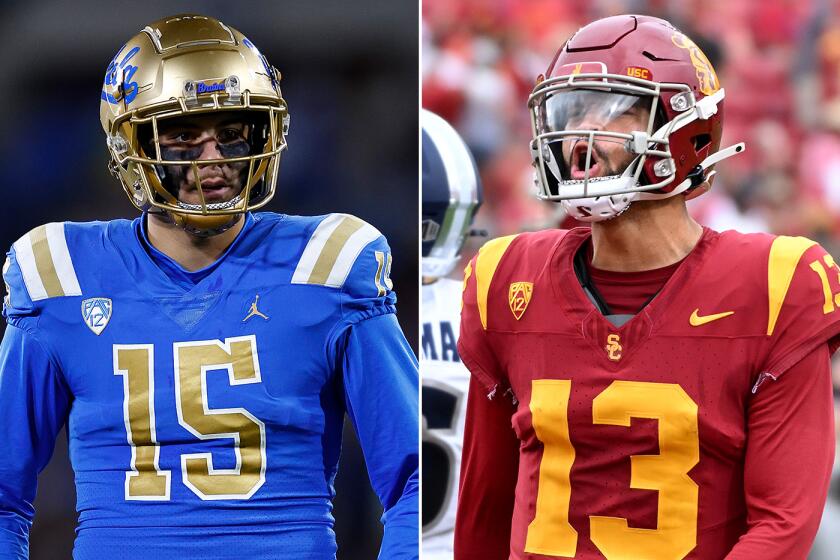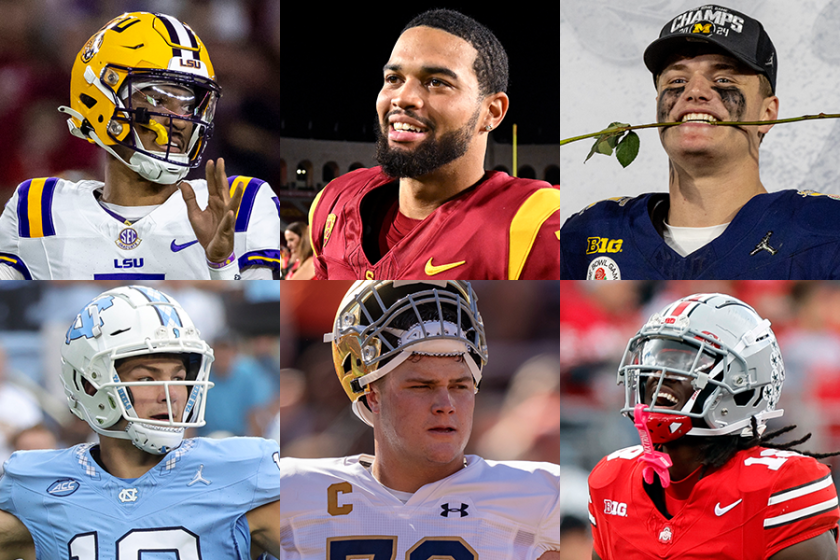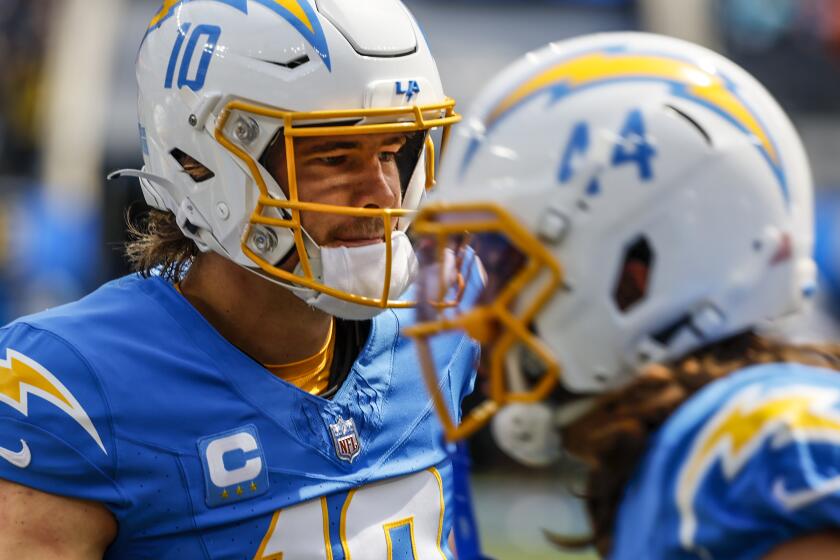Chargers might be looking for quarterback of the future in the NFL draft, but not necessarily in the first round
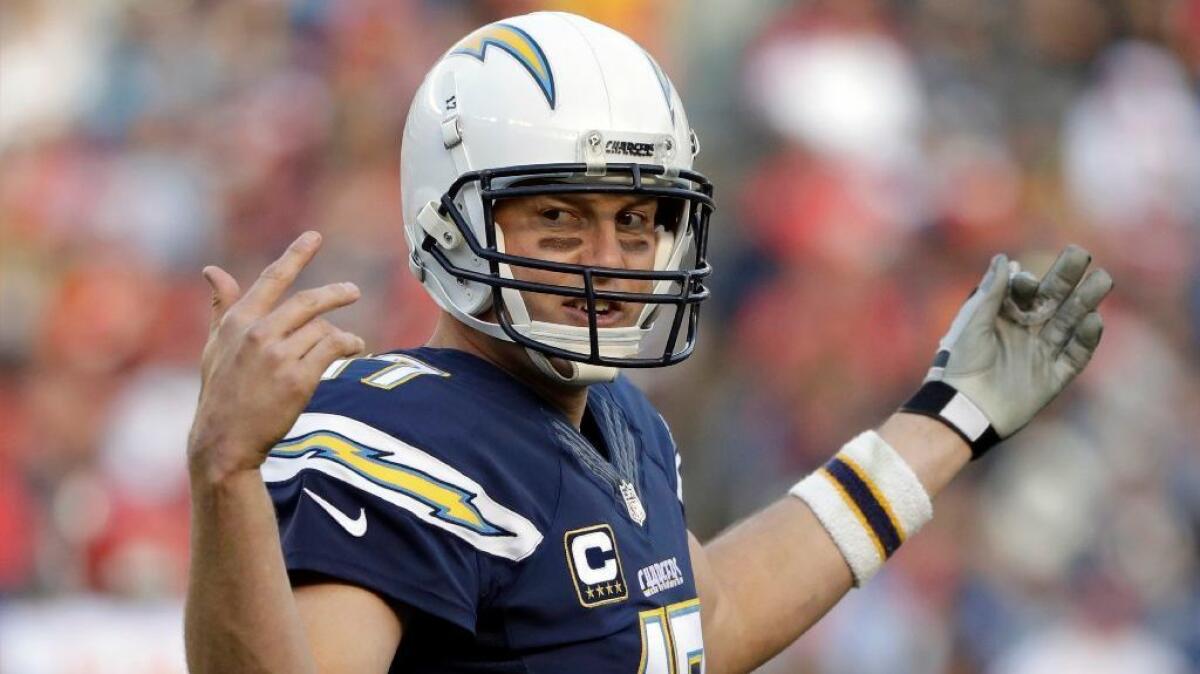
Chargers general manager Tom Telesco is prone to setting up a non-answer with a disclaimer.
Do you want to ask about his team’s draft strategy? Do you want to try to get inside the draft room and figure where the franchise will go with the No. 7 overall pick in the NFL draft — their first selection as a football team in Los Angeles?
“You can ask,” Telesco will say, before a slight smile creeps across his face, “but I won’t necessarily answer.”
So, maybe Telesco isn’t the best place to start when trying to assess whether the Chargers could be in the market for a quarterback in the upcoming draft. But the team’s new coach, Anthony Lynn, can gauge the numbers.
He’s looked at the depth chart and seen that QB1, Philip Rivers, is 35 years old and QB2, Kellen Clemens, will turn 34 before next season starts.
“I think we do have to get a young quarterback on campus. We have to start developing someone because we have two veteran quarterbacks,” Lynn said last week at the NFL’s owners meetings. “Both of them are long in the tooth. I think they have some good years left in them — don’t get me wrong. But, you have to start thinking about down the line too.”
Rivers might be “long in the tooth,” but he’s also long in the list of impressive statistics.
Even without much of a receiving corps last year, thanks to injuries, Rivers completed more than 60% of his passes — something he’s done every year he’s been the full-time starter.
He’s been durable; never missed a start. Only four active quarterbacks have thrown for more yards. Last season he threw for 4,386 yards and 33 touchdowns.
But age is age, and 35 is 35. And, Telesco said, star quarterback or not, the Chargers scouting team has a job to do.
“At every position, whether you have a franchise player at the position or not, you’re still scouting every position. That doesn’t change,” Telesco told The Times. “There’s no law that says if you have a franchise player at that position that you can’t scout that position anymore. So, we go through and scout every position all the way through.”
Rivers has his own scouting report.
“It doesn’t by any means really affect me. I think it’s healthy for me to know this thing doesn’t last forever. I have to get to playing better and keep this thing going as long as you can,” Rivers said in an interview with Nick Hardwick and Judson Richards on KLSD in San Diego. “I think as long as I do that, then whoever it is they bring in here, they’re going to sit for a while.”
This, unsurprisingly, went over incredibly well inside Chargers Park.
“I love that answer,” Telesco said.
Lynn said any player with a timeline shouldn’t be on his team.
“Philip is the type of guy I feel like we’ll eventually have to run off. I don’t think he’s going to ever retire,” Lynn said. “He’s the ultimate competitor. That’s how you like him. Guys who talk about playing one or two more years, those aren’t the type of guys I want to coach. I want to coach the ones who want to play forever.”
A successful, prolific quarterback who you’ll have to drag off the field? If it sounds familiar, it should.
In 2005, the Green Bay Packers were in a similar position. They had a 35-year-old quarterback, Brett Favre, who was still productive. But, with the No. 24 pick in the first round, the Packers took Aaron Rodgers, from California.
Favre’s interceptions started to increase (last year, Rivers threw a career-high 21 picks), and after Rogers waited for three years, he took over.
Now, using the No. 7 pick is very different from the Packers, a perennial winning team, using a late first-round pick on a quarterback.
Despite winning only five games last season, there’s optimism that the Chargers are better than their record portrays. If the team’s addition of Lynn changes momentum, if the team stays healthy and if the team adds impact rookies, the Chargers could make their first year in Los Angeles a successful one.
Using No. 7 to select a player who won’t play right away might not be the best way to endear the organization to a new market that isn’t overflowing with enthusiasm for the Chargers. Filling a need might help the team more initially, but Telesco said that’s exactly how not to think.
“You can’t pass really good players to take a lesser player at a position you need someone at just because you need someone at that position,” Telesco said.
There are draft scenarios where no quarterback will be off the board when the Chargers find themselves on the clock at seven. The top-rated quarterbacks are North Carolina’s Mitch Trubisky, Clemson’s Deshaun Watson, Notre Dame’s DeShone Kizer, and Texas Tech’s Patrick Mahomes II.
Depending on how the draft unfolds, quarterback is an option they’ll need to — and will — consider.
“As we get down to draft day, we make determinations — who’s available when and how they can help us. And, we’re not necessarily taking guys to help us in 2017. They can help us in ’18, ’19 and ’20 too. You have to have a long-term view of it,” Telesco said. “A lot of times, the draft board will tell you where to go with it.”
daniel.woike@latimes.com
More to Read
Go beyond the scoreboard
Get the latest on L.A.'s teams in the daily Sports Report newsletter.
You may occasionally receive promotional content from the Los Angeles Times.
